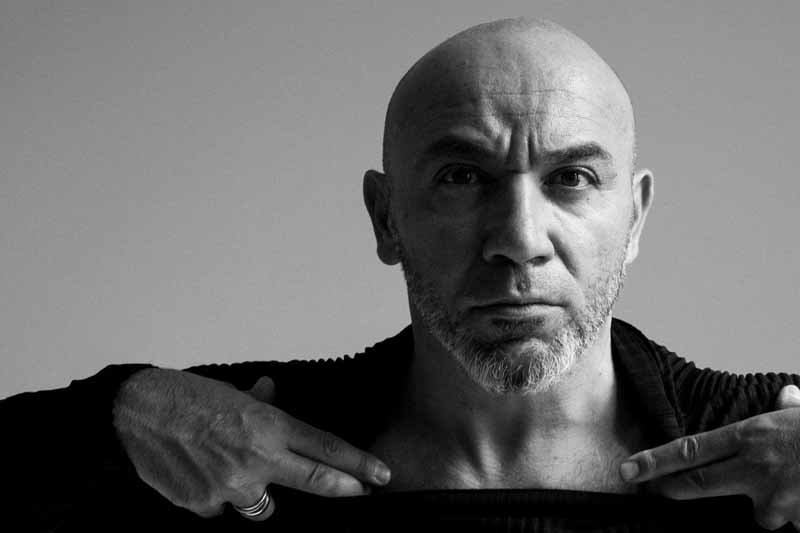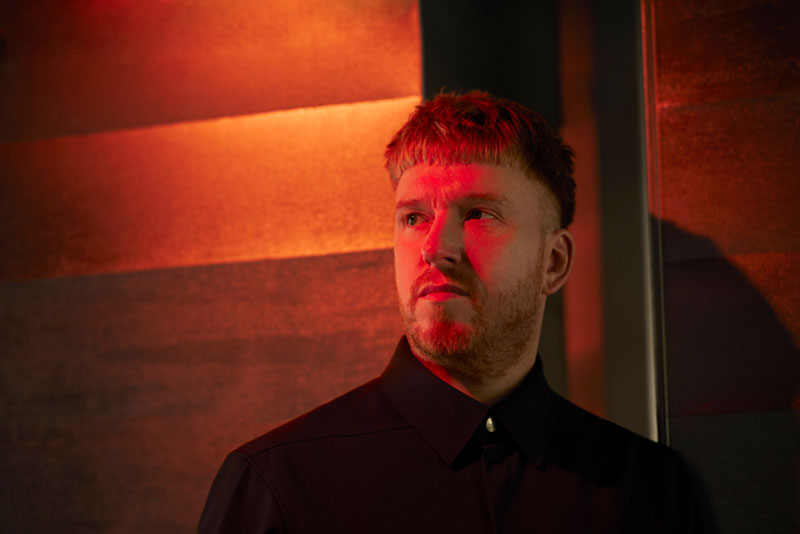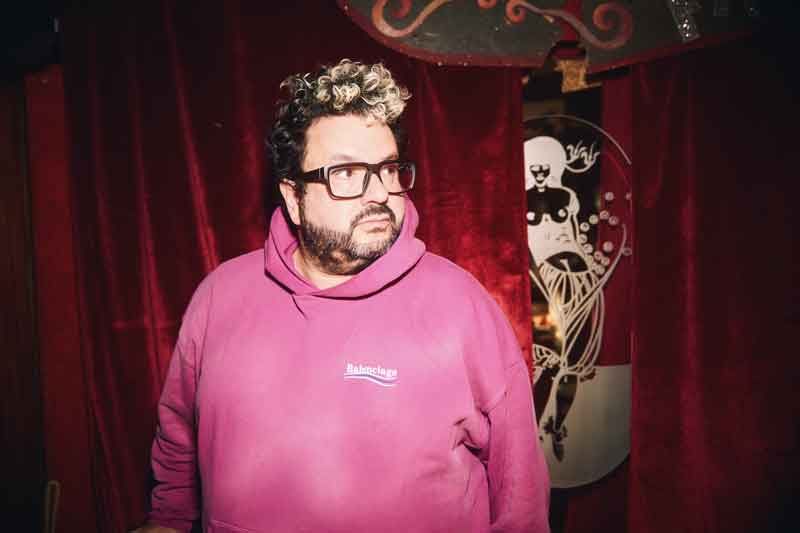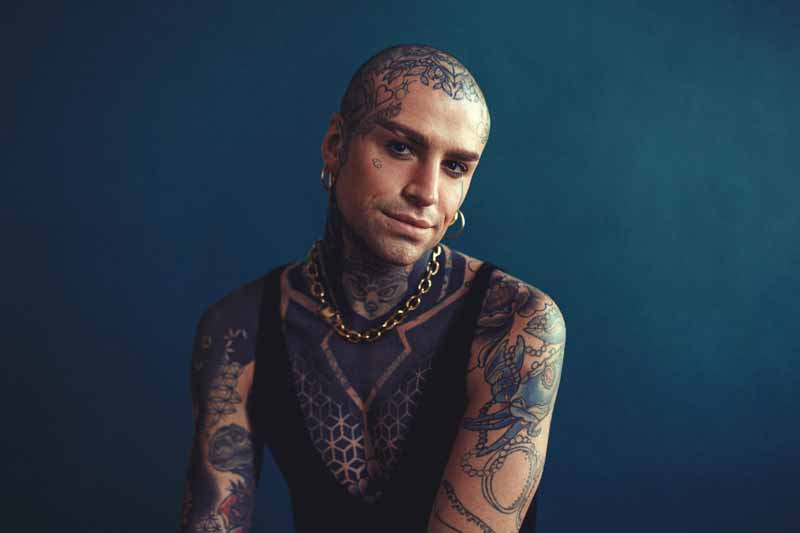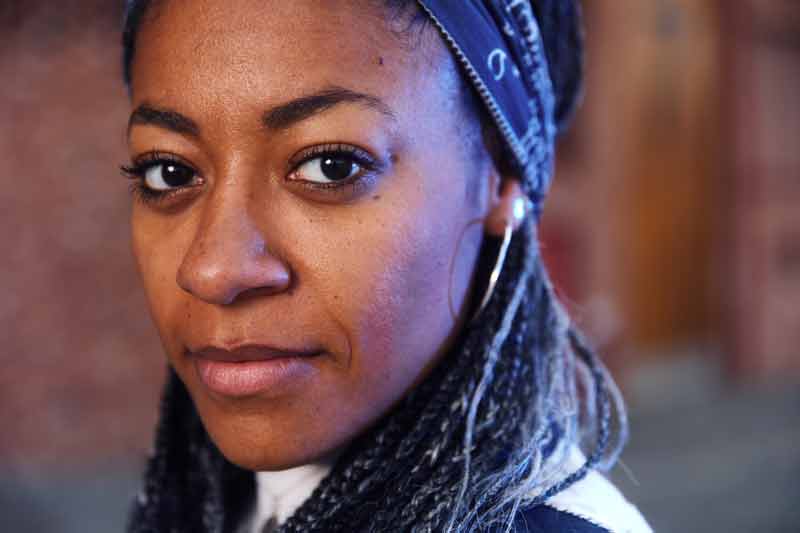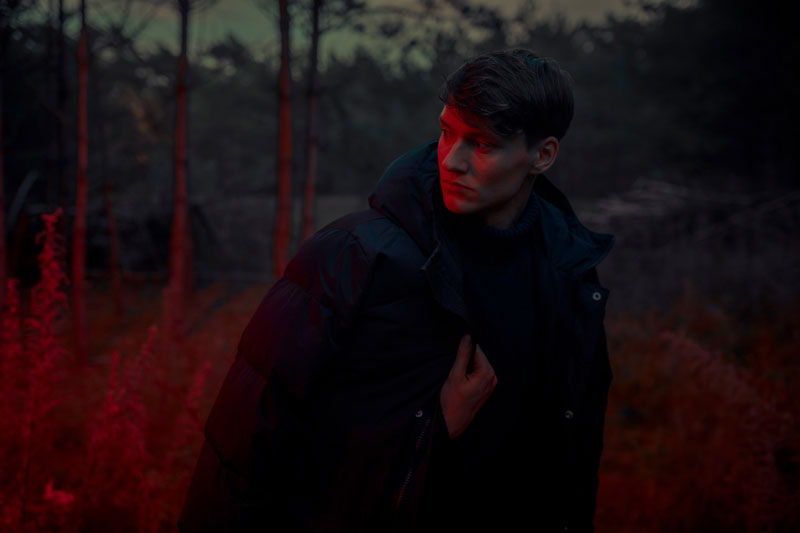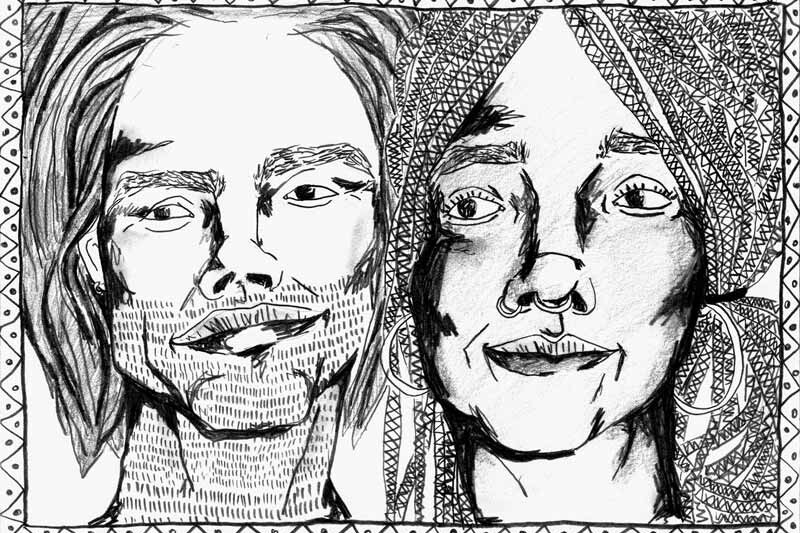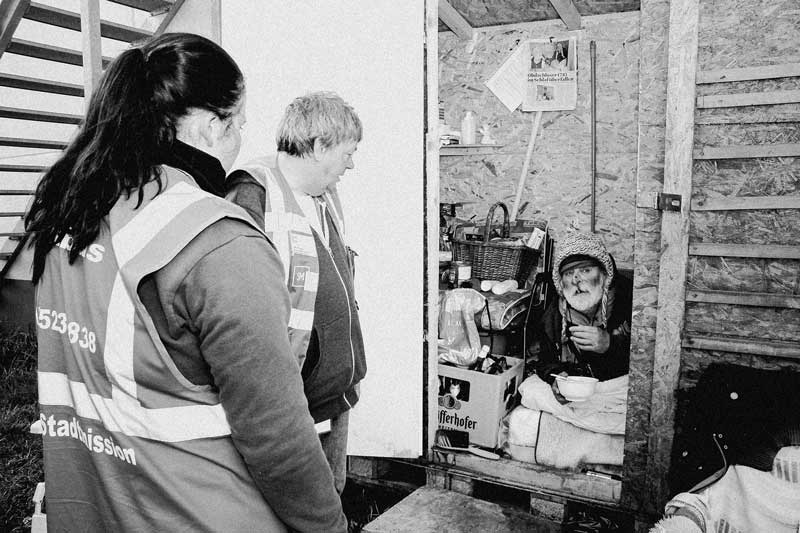Interview — Artists Of The Future (2)
Strip Down
The Future is non-binary: Electro-Synthpop artist Strip Down talks about coming out as trans—and about the most special duet of their life.
7. Januar 2019 — MYP N° 24 »Tomorrow« — Interview: Katharina Weiß, Photography: Lea Bräuer

Part 2 of our »Artists Of The Future« series:
Strip Down
When activism meets art: To female, trans and non-binary artists, the chances of making a career in show business can resemble that of a particularly nasty dice game. DICE Conference + Festival wants to shift the power structures in the entertainment industry, which is why during the three days of DICE, cis-male artists stay in the audience. MYP met some of the international artists performing at DICE in Arkaoda, Berlin-Neukölln.
We present Berlin-based composer Elie Gregory who identifies as non-binary. Under the moniker Strip Down, they produce Electro-Synthpop for the urban club culture.

Katharina:
In your opinion, how are the two terms “being an artist” and “being an activist” related?
Elie:
For me as a musician and also being active on the feminist scene for electronic music and digital arts, they’re quite related. This has also developed a new meaning since transitioning because now, I only play at feminist or queer festivals and events.
Katharina:
How has a certain struggle over identity shaped your path?
Elie:
I began Strip Down before transition, still presenting as female and actually stopped the project when I came out as trans, mostly because I wasn’t sure if I would be able to continue singing after the changes to my voice—which used to be a soprano. I’ve now actually used these changes in my voice to produce a special debut album.
»It sounds like two different people singing together, but actually it’s one person.«
Katharina:
We could read about “Remakings”, that it is supposed to combine your past and your present voices. How can we imagine that?
Elie:
Most of the songs use old recordings of my voice combined with recent recordings of my voice since transitioning, often an octave lower. The result is quite interesting because it sounds like two different people singing together, but actually it’s one person – with exactly the same accent and intonation.
Katharina:
Complete the sentences: I hate being labeled as…
Elie:
… any gender that I don’t identify with. As a trans person and also identifying as non-binary, being misgendered is something that happens every day.

Katharina:
On the contrary, I would wish to be appreciated for my…
Elie:
… honesty.
Katharina:
You play shows during the nights. What do you do during your days?
Elie:
Something a lot of people don’t know about me: Every week I teach music to about 100 very small children. I often show them my music videos and they always really enjoy it.

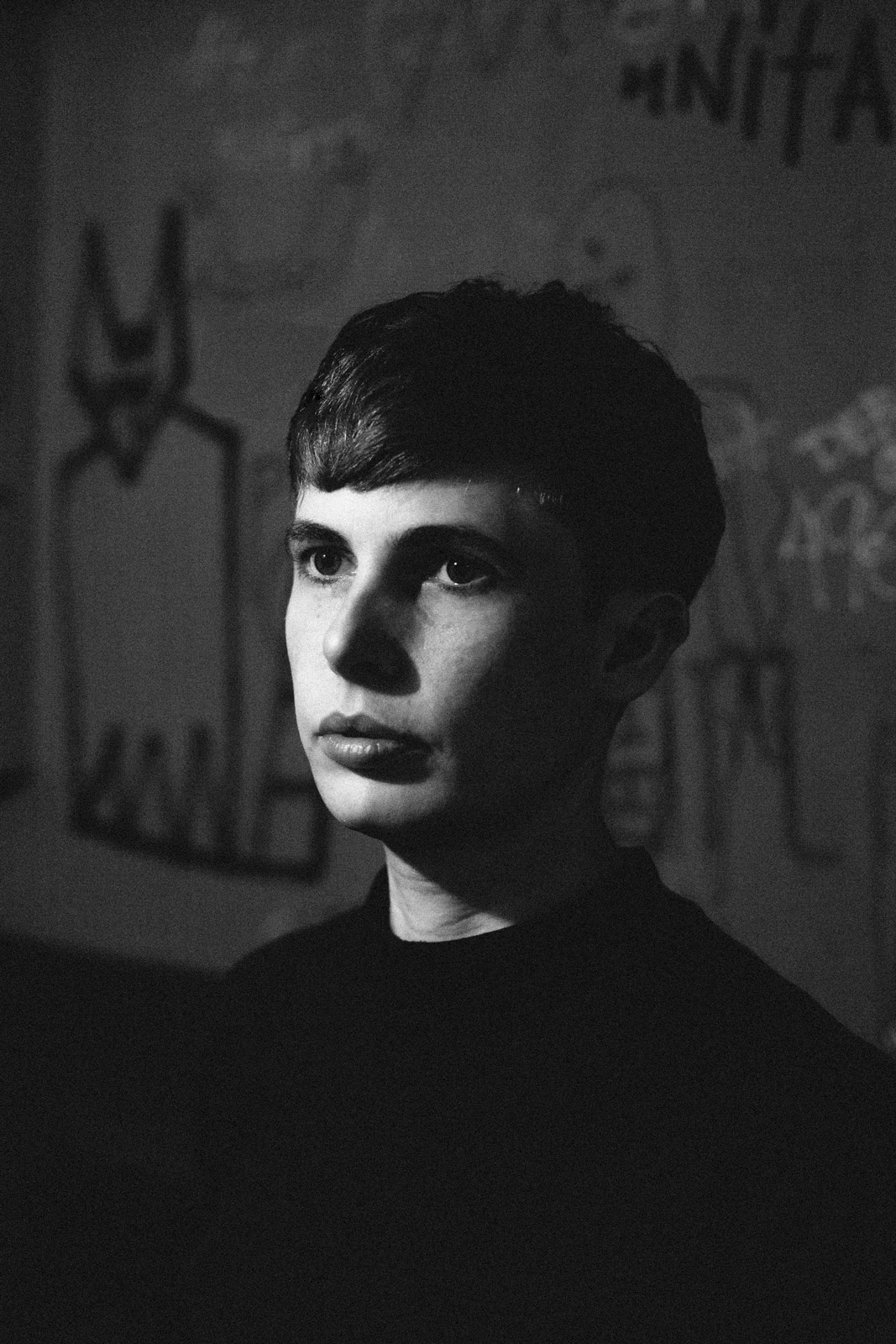
»I don’t have to explain myself to children in the way that I have to explain myself to an adult.«
Katharina:
Do you have to explain your non-binary identity to those children?
Elie:
That different gender identities are an issue that that needs to be discussed or categorized is a concept created by adults. We are not born with these ideas of a gender binary or heterosexuality. It is something we learn. I don’t have to explain myself to children in the way that I have to explain myself to an adult.
#stripdownmusic #diceberlin #mypmagazine
More about Strip Down:
stripdownmusic.com
facebook.com/stripdown
instagram.com/strip_down_
soundcloud.com/stripdown
More about DICE Conference + Festival:
Interview & Text: Katharina Weiß
Photography: Lea Bräuer
